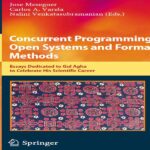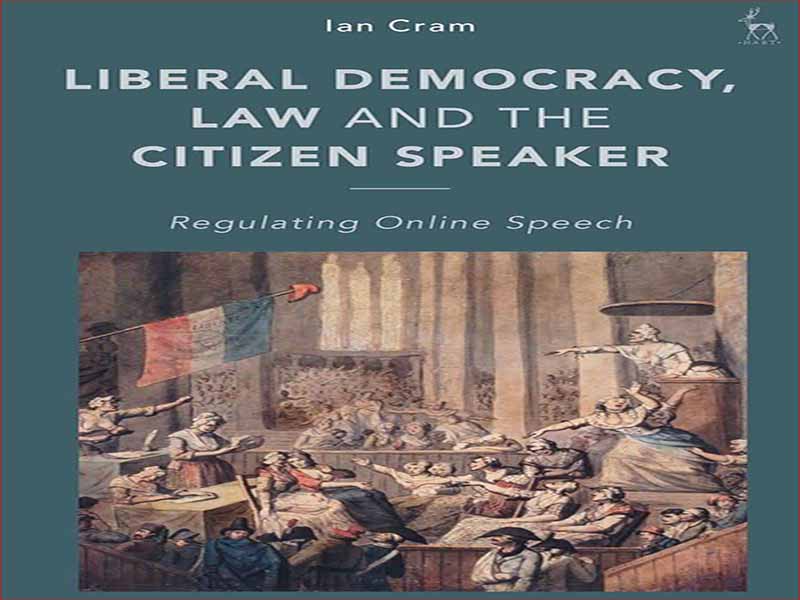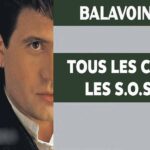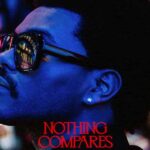- عنوان: LIBERAL DEMOCRACY, LAW AND THE CITIZEN SPEAKER
- نویسنده: Ian Cram
- حوزه: دموکراسی,لیبرال دموکراسی
- سال انتشار: 2022
- تعداد صفحه: 229
- زبان اصلی: انگلیسی
- نوع فایل: pdf
- حجم فایل: 4.97 مگابایت
این کتاب یک تحلیل اصلی و آگاهانه از مقررات قانونی گفتار آنلاین ارائه می دهد. این کتاب با رد کثرت گرایی محدود گزارش های نخبه گرایانه و مشورتی از نقش شهروندی در گفتمان سیاسی، از شرح مشارکتی گفتار در محیط های غیر مشورتی دفاع می کند. روایت اخیر از کثرت گرایی سیاسی به بهترین وجه آرمان دموکراتیک جمهوری خواهان برای نویسندگی مردمی و مداوم قوانین و محوریت آزادی مخالفت در نظریه دموکراتیک را نشان می دهد. سپس پیامدهای حقوقی و سیاستی برای دولت ها و پلتفرم های رسانه های اجتماعی این پیش بینی فراگیر از گفتمان عمومی به تفصیل شرح داده می شود. در دنیای دیجیتال، هر کسی که به اینترنت دسترسی داشته باشد می تواند سخنران باشد. سخنرانی در تریبون های عمومی دموکراتیک شده است. در عین حال، جنبه های سخنرانی آنلاین به وضوح مشکل ساز است. نگرانیهایی در مورد اطلاعات نادرست، «اخبار جعلی»، «جعل عمیق»، «سخنان مسلحانه» و «ترولها» وجود دارد. سخنان خشم آلود و اثرات قطبی کننده نظرات سیاسی قویاً بیان شده نیز دردسرساز هستند. گفته میشود که این دسته از جنبههای منفی سخنرانی دمکراتیک شده، یکپارچگی فرآیندها و نهادهای دموکراتیک را تضعیف میکنند. بحث عمومی تحریف و درشت می شود و رای دهندگان گمراه می شوند. دولت لیبرال دموکراتیک چگونه باید به این چالش ها پاسخ دهد؟ در نظر گرفته شده است که این بحث توسط دانشگاهیان و محققانی که علاقه مند به نظریه دموکراتیک، ارتباطات دیجیتال و آزادی بیان هستند، خوانده شود. این یک کمک محرک و متمایز به بحث در مورد سخنرانی آنلاین است.
Th is book delivers an original, theoretically informed analysis of the legal regulation of online speech. Rejecting the narrow pluralism of elitist and deliberative accounts of the citizen’s role in political discourse, the book defends a participatory account of speech in non-deliberative settings. Th e latter account of political pluralism best captures the republican democratic aspiration for popular, on-going authorship of the laws and the centrality of freedom to dissent in democratic theory. Th e legal and policy implications for governments and social media platforms of this inclusive envisioning of public discourse are then elaborated upon. In the digital world, anyone with access to the internet can be a speaker. Speech on public platforms has become democratised. At the same time, aspects of online speech are plainly problematic. Concerns exist about disinformation, ‘fake news’, ‘deep fakes’, ‘weaponised speech’ and ‘trolls’. Off ensive speech and the polarising eff ects of robustly expressed political opinion are also troublesome. Th ese assorted downsides of democratised speech are said to undermine the integrity of democratic processes and institutions. Public debate is distorted and coarsened and the electorate are misled. How ought the liberal democratic state respond to these challenges? Th e discussion is intended to be read by academics and researchers with interests in democratic theory, digital communications and freedom of expression. It off ers a stimulating and distinctive contribution to debates about online speech.
این کتاب را میتوانید از لینک زیر بصورت رایگان دانلود کنید:





































نظرات کاربران